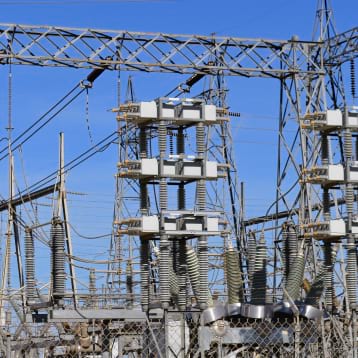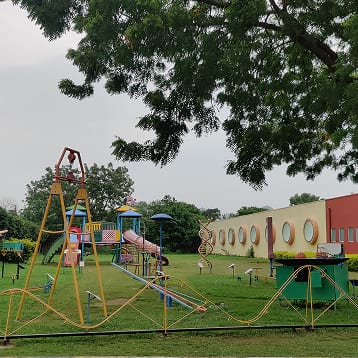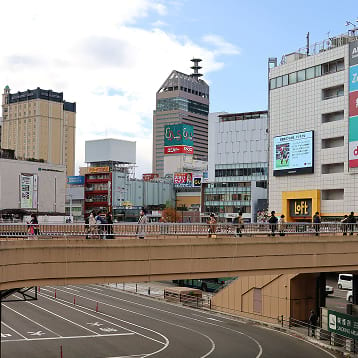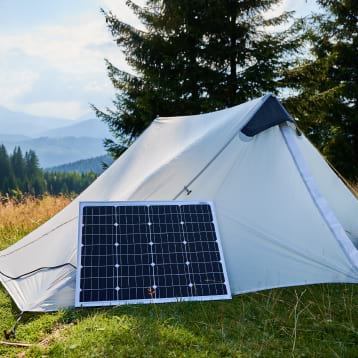

The CDRI Fellowship Programme empowers researchers to drive innovative, locally anchored solutions for resilient infrastructure.
Through a 12-month seed grant, fellows gain resources to develop scalable, actionable resilience solutions while engaging in peer learning and capacity building initiatives.
By bridging gaps in funding, cross-sector collaboration, and research implementation, the programme helps transformative ideas overcome institutional barriers and achieve meaningful, real-world impact across diverse geographies and development contexts.
Projects

Urban Flood Management Using Greenery and Detention Ponds in Ghana

Strengthening Flood Resilience in Deprived Urban Areas of Antananarivo, Madagascar

Sustainable Urban Drainage in Flood Management Forecasting in Mauritius

Integrating planning and communication using AI/ML in the USA

Nature-based Solutions for Unpaved Road Engineering in Brazil

ResilientRio: Approaches to Landslide Safety in Brazil

Constructed Wetlands for Wastewater Treatment Plant Resilience in Canada

AI Simulator for Climate Risk Decision-Making

Water Collection and Treatment System for Floating Communities in Peru

Climate Adaptation Using Nature-based Infrastructure Solutions in Peru

Enhancing power grid resilience with renewables amid climate change in the USA

Seismic hazard, flooding, and building vulnerability in coastal areas in the Dominican Republic

Evaluating Nature-Based Solutions for Rainfall-Runoff Reduction in Canada

Managing and Financing Risk for Resilient Rural Road Networks in Chile

GIS-Based Landslide Susceptibility Mapping in Afghanistan

Assessing Community Disaster Resilience via Infrastructure Functionality in Bangladesh

Evaluating Cyclone Resilience of Coastal Health Infrastructure in Bangladesh and Japan

Cyclone Classifier Model for Bottom-up Recovery Uptake in Bangladesh

System Dynamic Model for Urban Climate Resilience in Bhutan

Risk Assessment and Hazard Mapping Power System Infrastructure in Bhutan

Seismic risk evaluation of Bhutanese university buildings in Bhutan

Disaster Resilient Building Construction Practices in Bhutan

Landslide risk mapping, database, and mobile app for Bhutan

Community-Based Affordable Flood Early Warning System in India

Enhancing Disaster Resilience of India’s Undersea Cables in India

Assessing Geothermal Pavements Using Stabilized C&D Waste in India

Reducing disaster fatalities via district amateur radio in India

ML-Based Unified Seismic Vulnerability Prediction Model for Heritage Minarets in India

Building mountain disaster resilience via multi-stakeholder networks in India

DeepINDRA: Leveraging AI and Citizen Science for Flood Resilience in India

Regional Road Network Resilience using Landslide Susceptibility Model in India

AquaWISE: Disaster Resilience through Innovative Fog Monitoring & Forecasting in India

Disaster Resilience through Innovative Fog Monitoring & Forecasting in India

Incorporating Infrastructure Resilience into Port-led Development in India

Flood Resilient Hydraulic Design of Bridges Exposed to Climate Change in India

Building community resilience to Glacial Lake Outburst Floods in India

Feasibility study for agri-voltaic energy security in India

Drought Early Warning and Forecast Tool for Arid Regions in India

Disaster-based financial decision framework using Machine Learning in India

Modeling impacts on food security from debris flows in India

Comprehensive Heat Risk Framework for Elderly Commuters in Jodhpur

Flood Resilient Floating Community Housing in India

Thermal Stress Testing of Residential Buildings Using Weather Data in India

Inventory of High-Altitude Himalayan Wetlands for Disaster Risk Reduction in India

Monitoring drought plans through social audit framework in India

Resilient infrastructure planning for fragile wetlands system in India

Enhancing bridge resilience amid climate change in India

Building inclusive disaster resilience for persons with disabilities in India

Innovative structural protection for multi-hazard resilient communities in India

Risk-Informed School Evaluation Tool in India

Seismic risk assessment for hilly region infrastructure in India

Real-Time Bridge Scour Detection for Structural Safety in Japan

Evaluating Bridge Network Resilience Using Socio-Technical Attributes in Japan

Strong Motion Shake Map Application for Ulaanbaatar in Mongolia

Designing Solar Battery Infrastructure for Mountain Resilience in Nepal

Ripple Effect of Power Outages on Hospitals in Nepal

Framework for Landslide-Prone Critical Infrastructure Zoning in Nepal

Urban Cooling: Green Spaces and Water Bodies’ Effectiveness in Nepal

Smartphone-Based Open-Source Flood Discharge Monitoring in Nepal

Managing Landslides and Road Construction in Hilly Region of Nepal

Fibre Sensor Network for Early Road Collapse Detection in Sri Lanka

Multi-Hazard Risk Indexing of Coastal Critic in Thailand

Earthquake Resilience of Healthcare Facilities in Kocaeli Region in Turkiye

Debris Flow Risk Mapping and Early Warning in Italy
Gigapixel Imaging for Geohazards Assessment and Awareness in Italy

The Future Ground: Urban Planning for Infrastructure Resilience in India

Cross-Country Analysis of Climate Risks’ Fiscal Impacts in the UK

Web application to monitor river migration near bridges in the UK

Nature-Based Solutions for Resilient Infrastructure Systems in the UK











